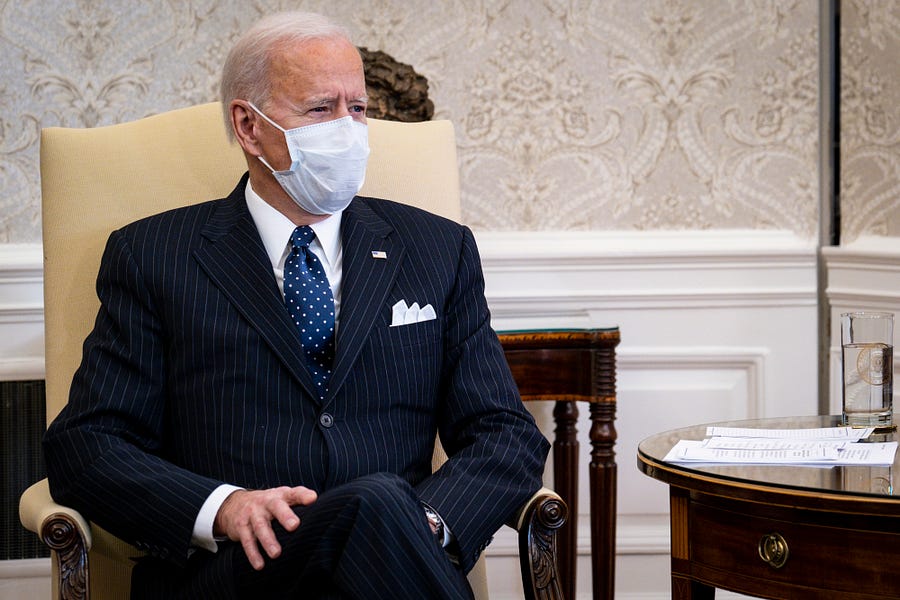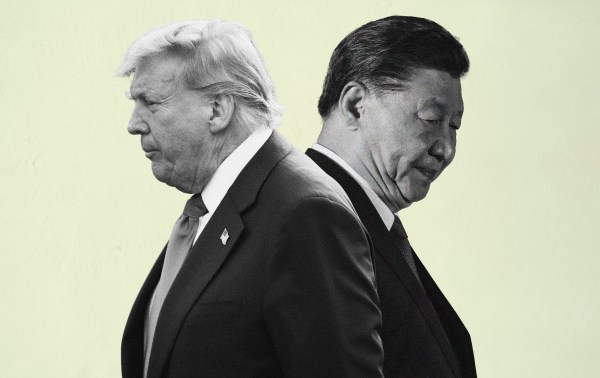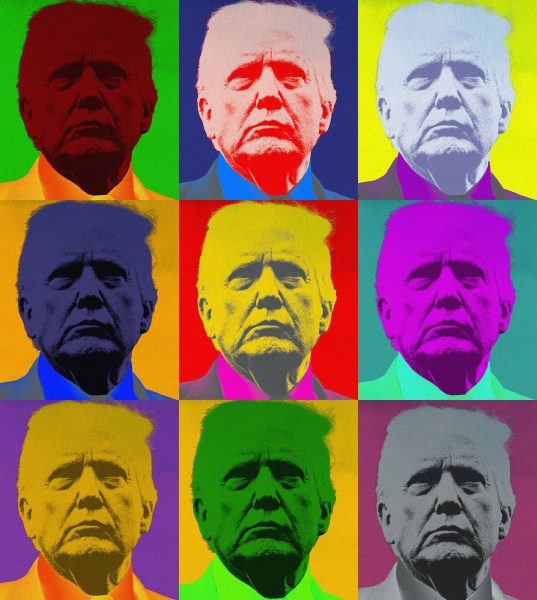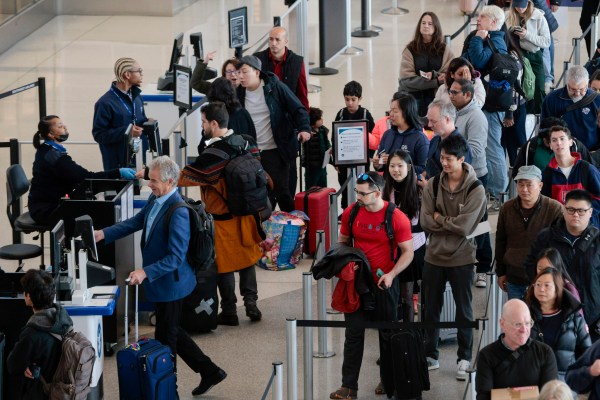Democrats used to understand pandemic economics. Donald Trump would complain that “the cure is worse than the disease,” or that Americans must be free to get back to work to improve the grim economic picture. Democrats would reply that the economic crisis was inseparable from the public health crisis. The idea was simple: The government could indeed mitigate some of the ongoing damage to household incomes. But a full economic revival required first containing the virus.
What was true in 2020 is true now. Yet Democrats have seemingly forgotten this insight, just as an unrelenting focus on speeding up vaccinations could end the pandemic more quickly. Instead, with control of Congress and the White House, the party is exhausting time and energy on a $1.9 trillion “stimulus” package that contains a raft of superfluous demands and offers up far more spending on economic relief than necessary.
Speaking at the White House on Friday, President Joe Biden presented the package as doing two things: providing additional funding for America’s direct pandemic response and offering American households support to bridge their finances until the pandemic ends. That sounds consistent with Biden’s 2020 “the economic crisis is a public health crisis” rhetoric. Unfortunately, it is at odds with the proposal’s substance.
Democrats have sought to include a gradual federal minimum wage hike to $15-per-hour by 2025, for example. This long-standing party ambition has nothing to do with ending the pandemic. In fact, with restaurants, entertainment, and hospitality being battered by depressed demand, lockdowns, and safety protocols that hamper efficiency, now is possibly the worst possible time to raise mandated wage floors. (Biden, for his part, has acknowledged the minimum wage increase could not be included in any package that passes the Senate via reconciliation.)
The bill’s assistance to unemployed Americans, struggling renters, and businesses ravaged by social distancing makes sense. But the bill showers Americans with $1,400 stimulus checks, commits hundreds of billions of dollars to expansions of the earned-income, child, and childcare tax credits, and provides another $360 billion in aid to states and cities, the vast majority of which recent revenue projections suggest is unnecessary.
The economic rationale for all this is unclear. If one subscribes to the Keynesian theory that governments must step in to “fill” an “output gap” caused by a shortfall in consumer spending, the total sums of the package vastly exceed the difference between output and the economy’s potential. Former Clinton Treasury Secretary Larry Summers says the plan will be three times the size of the ongoing output shortfall. Former IMF chief economist Olivier Blanchard agrees. He believes the economy would be at a severe risk of economic “overheating,” bringing with it a significant inflation risk.
Yet you don’t need to worry about the output gap or inflation risks to think this proposal is ill-suited to the economy’s needs. The economic crisis is clearly not one borne of “demand deficiency,” owing to a lack of middle-class income. In fact, Harvard economist Raj Chetty and his colleagues believe consumer spending by low-income consumers is up more than 13 percent from January 2020 to January 2021. The primary problem remains the virus, which leaves one-third of small businesses closed, according to Chetty’s Opportunity Insights tracker, and customers are wary of engaging in in-person service activity.
Former Obama Council of Economic Advisers Chair Austan Goolsbee railed against Trump’s proposed payroll tax cut last year, explaining that any stimulative impact of more money in taxpayer pockets was neutered by the unique circumstances of the pandemic recession. “The number one rule of virus economics is that you have to stop the virus before you can do anything about economics,” he argued.
Yet a full quarter of Biden’s package is devoted to stimulus checks to most Americans on the same shaky grounds as Trump’s payroll tax cut. That is on top of expanded unemployment insurance and previous relief packages that have resulted in household incomes growing substantially through 2020.
Indeed, so overly generous is the income support package, in particular, that Democrats tie themselves in knots trying to justify it. They say their go-hard-or-go-home spirit is informed by 2009, when they claim they were not ambitious enough with post-financial crisis stimulus spending. “We can’t do too much here,” said Biden on Friday, echoing liberal economist Paul Krugman. Yet to justify that this vast spending will not damage the economy, Krugman assures us (correctly) that the vast majority of the check money will be saved. In other words, because insufficient stimulus was delivered in 2009 we need to pass more stimulus this time—even though we don’t think it will actually stimulate much economic activity.
The justifications to send tax dollars to families with six-figure incomes whose jobs have not been affected by the pandemic are mind-bending. But the idea that all this support is proportionate is further undermined by how much of the last support package, passed just six weeks ago, remains unspent. For example, Biden says he wants more funding to help schools adapt to the pandemic and reopen, but according to a group of 10 Republican Senators led by Susan Collins, $60 billion already appropriated for K-12 education remains idle. The CDC, meanwhile, estimates that the cost of covid adaptation in schools will total around $20 billion. Biden’s package includes another $130 billion.
The inflated numbers and rhetoric deployed by Democrats both ignore the widespread bipartisan support for spending on genuinely urgent priorities like schools, vaccines, and unemployment evidenced by last year’s pandemic support.
But even where the money is better targeted, the Democrats still can’t resist going too far. The bill would maintain expanded unemployment insurance right through to September, for example. Yet, if the vaccine rollout really took off, we would hope for a significant economic normalization before then. Paying expansive unemployment benefits as companies are scrambling to rehire would risk hindering a jobs recovery.
For all the focus on “output gaps” and stimulus, the biggest economic boost available to us comes not through instituting tighter wage controls or bailing out states, but speeding up the vaccine rollout. Biden’s bill, commendably, provides another $20 billion for vaccine distribution. Given each week of the pandemic brings economic and health costs of about $15 billion, this would pay for itself if it sped up the end of this phase of the pandemic by even 10 days. Yet these worthy components of the bill are being held hostage by an unjustifiable progressive wishlist.
What’s more, this political focus on “stimulus” negotiations is masking a maddening lack of urgency on vaccines in Biden’s regulatory state. The FDA has said it will take until the end of the month to review the Johnson & Johnson vaccine trial data—an unjustifiably long wait. The president has upped his vaccine target from a million a day to 1.5 million a day. That new target has almost been met, so let’s be more ambitious. Why not try to close the gap between the US and the UK, whose vaccination rate is nearly 50 per cent faster at the moment? This is where the administration should be investing all of its attention, energy and political capital. Cases might be falling right now, but the more transmissible British variant is currently doubling every 10 days, so the need for vaccine speed has never been greater.
When it comes to the vaccine push, there is, to borrow from the Democrats’ economic rhetoric, no such thing as too much. If Democrats are worried about output, then the only gap that it matters to close is between the number of vaccines administered and the number needed to end the pandemic. And Joe Biden of 2020 understood why: Only once the virus is dealt with can the economy really fulfill its potential.
Ryan Bourne occupies the R. Evan Scharf Chair for the Public Understanding of Economics at the Cato Institute. Oliver Wiseman is U.S. editor of The Critic.






Please note that we at The Dispatch hold ourselves, our work, and our commenters to a higher standard than other places on the internet. We welcome comments that foster genuine debate or discussion—including comments critical of us or our work—but responses that include ad hominem attacks on fellow Dispatch members or are intended to stoke fear and anger may be moderated.
With your membership, you only have the ability to comment on The Morning Dispatch articles. Consider upgrading to join the conversation everywhere.